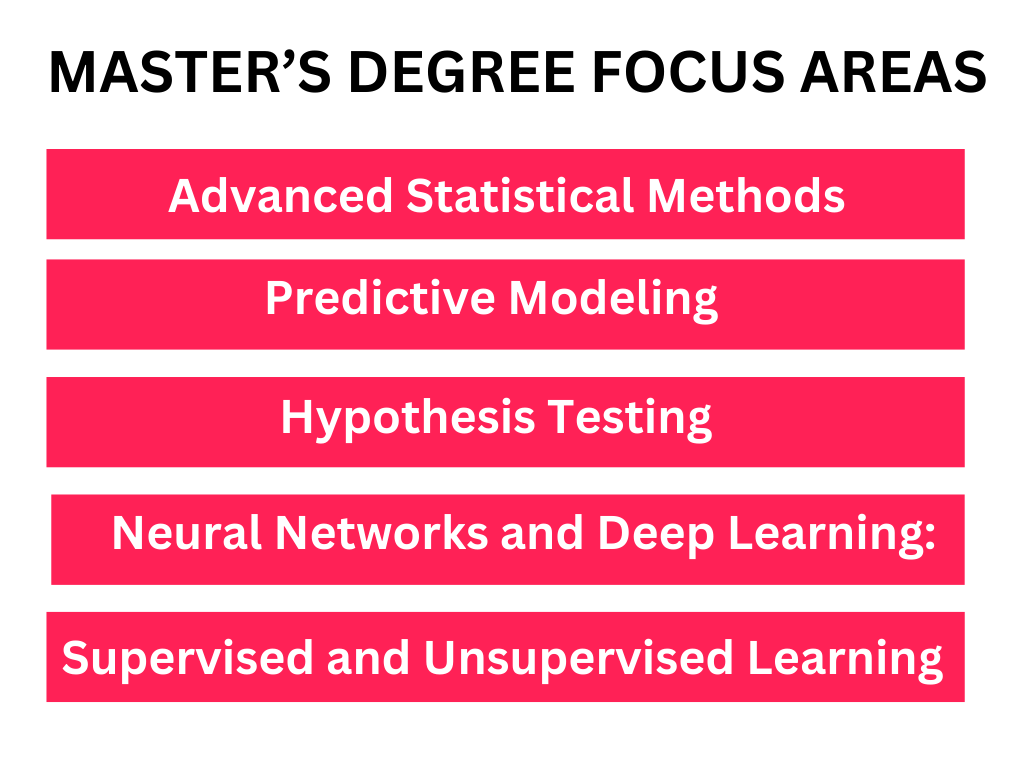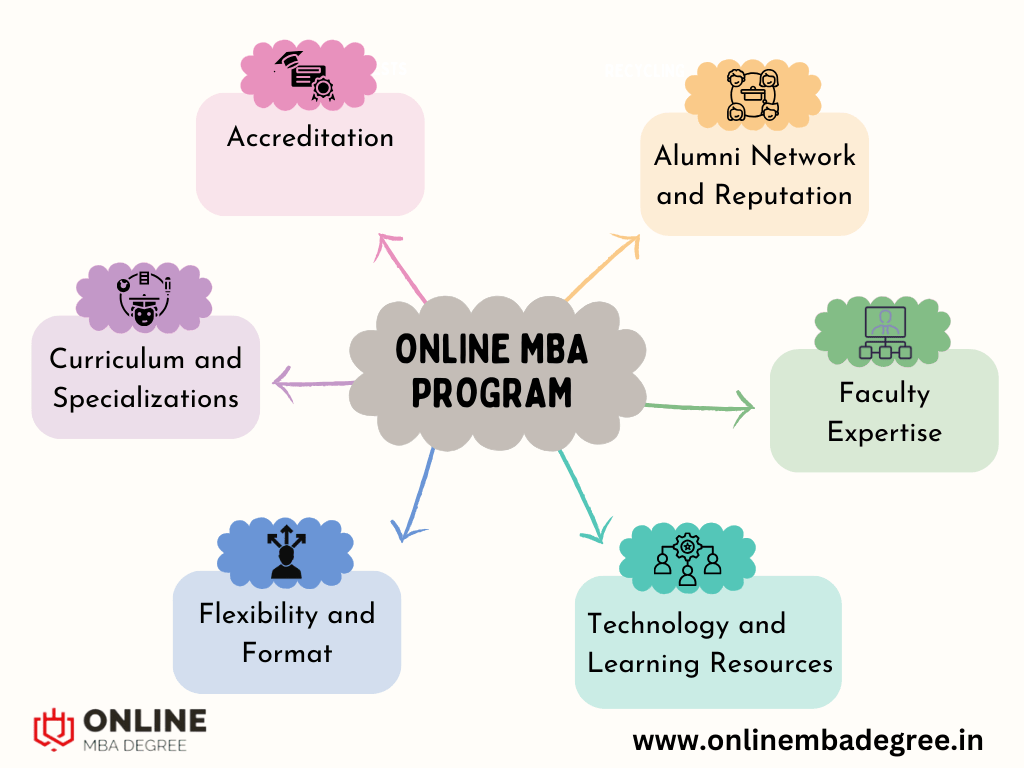UGC Announces Admissions in Two Academic Session 1st Batch(July/August) . 2nd Batch (January/February)
Get an Online MBA Degree by NAAC A++ Accredited Universities
Globally Recognised Universities
As per Govt. Online MBA Degree are Now Equivalent to Regular Degrees
Hurry Up! Admission Closing Soon. Only Few Seats Left. Enroll Now!
ODL & Online MBA Programs are Equivalent to Regular (Campus) Programs - To know more
UGC Announces Admissions in Two Academic Session 1st Batch(July/August) . 2nd Batch (January/February)
Get an Online MBA Degree by NAAC A++ Accredited Universities
Globally Recognised Universities
As per Govt. Online MBA Degree are Now Equivalent to Regular Degrees
Hurry Up! Admission Closing Soon. Only Few Seats Left. Enroll Now!
ODL & Online MBA Programs are Equivalent to Regular (Campus) Programs - To know more

Online MSc in Data Science
Enrolling in an online Master of Science (MSc) in Data Science program may provide students with advanced knowledge and skills in data analysis, machine learning, and big data management. Often covering foundational topics like statistical analysis, data visualization, and predictive modeling, these programs are meant for working professionals and individuals seeking flexible learning options. Students often work on real-world projects and learn programming languages like R and Python, which are essential for utilizing machine learning techniques and handling large datasets. Graduates may succeed in a range of areas, including marketing, technology, finance, and healthcare, thanks to the flexibility of asynchronous learning, interactive coursework, and group projects provided by the online format.
Topics Covered in Online MSc in Data Science Degree
| Semester 1 | Semester 2 |
|---|---|
| Mathematics for Spatial Sciences | Spatial Big Data and Storage Analytics |
| Applied Statistics | Data Mining and Algorithms |
| Fundamentals of Data Science | Machine learning |
| Python Programming | Advanced Python Programming for Spatial Analytics |
| Introduction to Geospatial Technology | Image Analytics |
| Programming for Spatial Sciences | Spatial Data Base Management |
| Cyber Security | Flexi-Credit Course |
| Semester 3 | Semester 4 |
| Spatial Modeling | Industry Project |
| Summer Project | Research Work |
| Web Analytics | – |
| Artificial Intelligence | – |
| Predictive Analytics and Development | – |
| Flexi-Credit Course | – |
A Synopsis on the Program
- Objective: Equip students with advanced data analysis and machine learning skills.
- Duration: Typically 1-2 years, fully online.
- Core Areas: Statistical analysis, machine learning, data engineering, and visualization.
- Skills: Programming in Python, R, and SQL; big data analytics; business intelligence.
- Focus: Ethical data use, research methods, and domain-specific applications.
- Delivery: Flexible, allowing students to balance studies with work commitments.
- Outcome: Preparation for careers in data-driven fields like finance, healthcare, and technology.
Master’s Degree Focus Areas

A focus area can be selected but is not required for the Data Science master’s.
- Advanced Statistical Methods: Techniques such as Bayesian inference, time series analysis, and multivariate analysis are covered to analyze complex data sets.
- Predictive Modeling: Building models to predict future outcomes based on historical data using methods like regression, classification, and time series forecasting.
- Hypothesis Testing: Formulating and testing hypotheses to determine the validity of assumptions and drawing meaningful conclusions from data.
- Supervised and Unsupervised Learning: Techniques like regression, classification, clustering, and dimensionality reduction to analyze data and build predictive models.
- Neural Networks and Deep Learning: Advanced machine learning algorithms inspired by the human brain, including convolutional and recurrent neural networks for tasks such as image recognition and natural language processing.
Skills that will be useful to you
- Quantitative and analytical abilities
Data analysis: Capacity to decipher and examine intricate data sets.
Solution-Oriented Ability: Capability to recognize problems, evaluate information, and formulate calculated solutions.
- Artificial Mastery
Software Proficiency: Working knowledge of data analysis programs including Tableau, SAS, R, Excel, and SQL.
Tech Savvy: At ease with a range of online learning resources and platforms.
- Analytical Reasoning
Decision-making: Assessing possibilities and utilizing data to make well-informed business decisions.
Flexibility: The capacity to pick up new ideas and adjust to changing procedures and technology.
Must Read Books
“Python for Data Analysis” by Wes McKinney
- This book focuses on using Python for data manipulation, analysis, and visualization with libraries like NumPy, Pandas, and Matplotlib. It’s essential for mastering data handling in Python.
“R for Data Science” by Garrett Grolemund and Hadley Wickham
- Offers a practical introduction to R programming for data science, covering data manipulation, visualization, and machine learning using tidyverse packages. It’s highly regarded for its clarity and practical examples.
“Hands-On Machine Learning with Scikit-Learn, Keras, and TensorFlow” by Aurélien Géron
- Provides a hands-on approach to machine learning with Python, covering key algorithms, model evaluation, and deep learning frameworks like Keras and TensorFlow. It’s suitable for both beginners and experienced practitioners.
“Pattern Recognition and Machine Learning” by Christopher M. Bishop
- This book offers a comprehensive introduction to machine learning methods, with a focus on probabilistic modeling and pattern recognition techniques. It’s well-suited for those interested in the theoretical foundations of machine learning.
“Big Data: Principles and best practices of scalable realtime data systems” by Nathan Marz and James Warren
- Covers the principles of big data systems and real-time analytics using tools like Apache Kafka and Storm. It’s valuable for understanding scalable data architectures.
Benefits of Enrolling in Online Msc in Data Science
Advancement in Profession: Earning an M.Sc. in Data Science and Analytics can help you grow in your career and increase your income by equipping you with highly sought-after skills in data analysis and strategic decision-making.
Practicality: Business analytics is a rapidly growing field. This specialism is very relevant as businesses are relying more and more on insights from data.
Possibilities for Socialization: Despite being entirely online, a lot of programs provide group projects, virtual networking, and access to a wide range of peers.
The Eligibility Criteria for the Program

Education Knowledge: Most programs need a bachelor’s degree from an accredited university. While many programs accept degrees in any field, some prefer applicants with a background in business, economics, or a related field.
Experience in the Workplace: Many online master’s programs require or encourage candidates to have two to five years of professional work experience. Students may engage with and benefit from the program’s practical, real-world focus thanks to this practice.
Mathematical talents: Although not normally a formal need, having a foundation or basic understanding of statistics, data analytics, and similar technical talents can be beneficial and occasionally expected.
Life After Online Msc in Data Science
Benefit for Investment: Online programs could be less expensive than traditional on-campus education. There are ways to cut back on relocation, travel, and accommodation expenses, and many online institutions provide financial aid and scholarships.
Global Perspective: Online programs that give a global perspective on business and analytics often attract students from all around the world. This international experience can enhance your understanding of global marketplaces and diverse company procedures.
Improved Understanding Acquired: Having an MSc in Data Science and Analytics provides you a significant advantage if you have both analytical skills and business understanding. Additionally, you will become proficient in data analysis, statistical modeling, and machine learning. You may lead analytical initiatives in your organization and make data-driven decisions with the help of this dual emphasis.
Conclusion
An Online MSc in Data Science and Analytics offers a rigorous and flexible pathway for acquiring advanced skills in data manipulation, statistical analysis, machine learning, and big data technologies. This program equips students with the proficiency to extract meaningful insights from large and complex datasets, preparing them for careers in industries reliant on data-driven decision-making. Through a blend of theoretical knowledge and practical application, students develop expertise in programming languages like Python and R, explore cutting-edge techniques in statistical modeling and machine learning, and gain hands-on experience with tools for data visualization and big data analytics.
The online format provides accessibility and allows students to tailor their learning experience while balancing academic pursuits with professional commitments. Emphasizing ethical considerations and industry relevance, the program ensures graduates are well-prepared to address challenges and innovate in today’s data-centric landscape.
GET FREE COUNSELING













